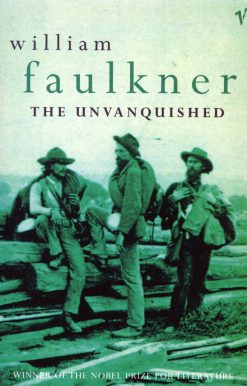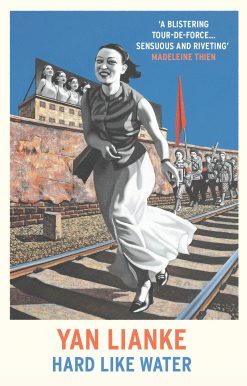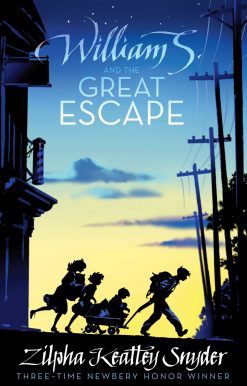Description
Abram Singer is a Catholic priest with an unusual name and a dark secret. Against the backdrop of gritty 1970s New York, in a simple, straightforward style, he tells us his story. The son of an absent Jewish father and a devout Italian mother, Abram was drawn to the meaningful structure of the seminary, eventually becoming a parish priest in Manhattan. His sincerest wish is to do God’s work, but he is not without human failings: he is irresistibly attracted to women and has a secret lover named Lisa. But when an anonymous letter arrives threatening to expose his liaison, he is forced to decide whether the risks of his sin have become too great. Riveting and powerfully intimate, Unworthy unflinchingly explores the nature of faith, loyalty, and identity—and gives us a timeless portrait of a man trying to make his way in America’s greatest city.
Additional information
| Weight | 0.17 kg |
|---|---|
| Dimensions | 1.25 × 13.29 × 20.25 cm |
| Format | |
| language1 | |
| Pages | 192 |
| Publisher | |
| Year Published | 2019-8-13 |
| Imprint | |
| Publication City/Country | USA |
| ISBN 10 | 0525435271 |
| About The Author | Antonio Monda is the author of five novels and five collections of essays. His books have been translated into eleven languages. He is a regular contributor to La Repubblica, and his work has also appeared in The Paris Review, Fiction, The Common, and Vanity Fair. He lives in New York City, where he teaches at New York University. |
“With storytelling finesse, Antonio Monda has written a compact and forceful book that might be a morbid erotic tale out of Boccaccio, exposing the tormented lust of the clergy.” —Philip Roth“A meditation on the contradictions of a calling that demands both a sensitivity to the beauty of God’s creation and the restraint to remain detached from its most intense pleasures.” —The New Yorker“With elegance, grace, and clarity, Antonio Monda depicts a crisis of faith and longing in New York.” —Colum McCann, National Book Award–winning author of Let the Great World Spin “Passionate, singular. . . . Gives us a whiskey priest for the ages.” —Mary Karr, author of The Liars’ Club “A striking novel about an unlikely priest, one who is alive with contradictions. This is a beautiful meditation on faith, sex, frailty, and, above all, love.” —Cathleen Schine, author of The Three Weissmanns of Westport “Monda has miraculously entwined two distinct genres that turn out to unexpectedly and beautifully illuminate each other: the novel of urban nostalgia . . . and the memoir of spiritual struggle, which has its roots in St. Augustine’s Memoirs—a work that haunts Monda’s in more ways than one.” —Daniel Mendelsohn, author of An Odyssey: A Father, a Son, and an Epic “A moving exploration of suffering and happiness and an examination of the shame of sin and the thrill of yearning. . . . Paint[s] an intimate portrait of a man besieged by the tumultuous collision of doctrine and desire.” —Booklist “Makes the terrestrial feel holy. . . . Monda proves himself a worthy interlocutor of the spiritual and the secular alike.” —Publishers Weekly |
|
| Excerpt From Book | 1If you ask me why, my answer is it’s the only way I can be, I can’t be any other.And if you add that I’m a hypocrite and I ought to be ashamed, I’ll say: I know, you’re right, even if you’re the real hypocrites and you don’t want to look inside yourselves. I have a great, an enormous responsibility: I’m a symbol of flesh and thought, of matter and spirit. And I’m a fisher of souls, not bodies.I’m a reference point, a glimmer of light, living testimony that humans do not prefer the darkness: I am my words and my actions.And if I make people glad, I’m their smile: I’m the good I do, which sometimes I don’t even know I’ve done. And I’m the bad I leave behind me, which spreads like the good, maybe even more than the good.I am my body’s waste, and I’m the reek of sulfur I smell on myself always, every minute, a stench that never goes away, not even when I bathe: I’m my clay, and I’m my spirit.Life is choices, will, responsibility. I’ve known that since I was born. But it’s also the desire I can’t extinguish, it’s my dream that comes to naught every day; it’s my rage and my misery.And it’s my heart, which beats fast when my cock gets hard, and in that moment nothing else exists, nothing at all: only the body of the woman who wishes to be taken, banged, loved. Her breasts, her hips, her ass. The games and the moans. The eyes that close and tell me not to stop. And the lights of this desert, which explode when we come in the bed, on the sofa, on the floor.This is what I am. No, don’t ask me why.And there is no morning, there’s no day, there’s no moment when I don’t give thanks to my Creator, for life is a gift, a blessing, a miracle, and we shouldn’t be ashamed of anything. And there’s no morning, no day, no moment when I don’t thank him for this frailty that makes me feel human, and for the joy my sin gives me. For the breasts I squeeze and suck, for the lips that seek mine and kiss me, for the curve of the hips: Only a God who loves us could have created something so beautiful. And I give thanks, yes, thanks, to our Father who is in heaven for the shame I feel each night. And for the anguish that awakens me at dawn and reminds me who I am, what I’ve promised, what I continue to wish for and to dream of.I’m the absurdity of my Jewish name in my priest’s habit. And I’m the miracle of that same name in this same habit.I am Abram Singer, priest of the Holy Roman Church. 2I never met my father, I know only that his name was Nathan and that he was an actor, or perhaps an artist. I’ve never been clear about that, actually.He had the same nose as mine, long and prominent, and curly hair like mine. He lived on the streets, under the bridges, and he slept in cardboard beds, according to what my mother told me: He entered her house to steal some food, and they started to fall in love that very night, they were born for that moment.He told beautiful stories, which was how he won her heart. I think about that every time I go up into the pulpit, because I must tell the most beautiful story of them all, about the freshwater fishermen whom a carpenter’s son calls to change the world.They look at me hopefully, admiringly, without knowing a thing about me. They look at me after I’ve heard them confess their sins, which are almost always laughable compared to my own. They stare into my eyes to tell me that the flesh is weak but the spirit is strong, and my words are the way to salvation: Every time you fall, you’re reborn. And their faces light up in a smile when I hand them the body of Christ, who was crucified for me.Even afterward, when they come to greet me on the parvis in front of the church, I continue to speak with passion, with the joy of one who believes that the crooked world can really be made straight, and they say thank you, Father Abram, thank you, and maybe even they find that an absurd name for a priest.There’s nothing that demonstrates solitude better than a priest’s room: The musty smell, the books, the wardrobe containing not many clothes, and all of them dark. The missal, the prayer book. The photograph taken at the moment of ordination, the ordinand lying prostrate on the floor in front of the altar to receive the spirit that saves and guides.Change it into strength, Father John used to tell me, and always look inside yourself, without fear of what you may see there: Noli foras ire, in te ipsum redi, in interiore homine habitat veritas. I’ve tried it, Father John, and I still believe it, but I can’t do it. And every time I try, I behold the abyss.In the evening, before I go to bed, they all come back to visit me, all my girls. I imagine them at the moment when they make it clear that we’re about to do it, that is, at the loveliest moment.Then I also imagine them when they look me in the eye and say, You’re a priest, aren’t you ashamed? Dena said it with a simple smile, but not Lisa, she says it with a caress, because she loves me as she loves her own life, and she can’t accept that I’m married to a two-thousand-year-old church.They appear while I’m saying mass, while I’m performing a baptism, while I’m uniting a couple in marriage, while I’m administering the last rites and anointing the sick. Once it happened even while the bishop was giving me instructions concerning this parish, whose congregation is shrinking: It was up to me to revive it, it was up to me to spread the Savior’s word. He’s a good man, the bishop. He may be the only priest I could bring myself to confess to.I always have trouble going to sleep, and I have trouble waking up. “Then the night drags on; I am filled with restlessness until the dawn,” I read in the book of Job. And I also read “My days are swifter than a weaver’s shuttle; they come to an end without hope. Remember that my life is like the wind; my eye will not see happiness again.” In my sleepless nights, I think back on the woman who gave birth to me; when I decided to become a priest, I thought I also understood why.My parents’ eternal love lasted a few weeks, and I am its only result. All the rest has disappeared, like the beautiful stories my father told.I don’t even know if his last name was really Singer. My mother adopted it because she wanted to celebrate the people of the man who had made her feel like a woman. And a daughter. And a mother. And a lover. Daddy was always acting, she told me once, and I answered that we all do that. “It was his frailty that won my heart,” she replied.Who knows how she managed to bestow this name on me, who knows whom she persuaded or what her beautiful story was; but sometimes the simplest people succeed in doing the hardest things.And she chose Abram because the moment I came into the world, she decided that she’d bring me up to sacrifice all I had for something I believed in.If only I had the strength to do that.When I decided to become a priest, I felt that strength, believe me, and I still feel it; I want to change this dirty world, or at least to change myself, which may be even more difficult. 3I worked for three years on the lower tip of the island: first bringing land to where there was no land, and then building the two tallest skyscrapers in the world. And both of those jobs made me feel closer to God. I know that he’s inside us and that the ultimate meaning of life is to give existence the proper form; a blue-eyed German cardinal told me so. He must have read my heart, because he said it with the implacable severity of good people.I also know that life is a hard battle, indeed a via crucis, but when I was a working man, I seemed to see God in everything: In my fellow workers’ eyes, filled with enthusiasm and hope. In our callused hands, which defied first the sea and then the sky. In the sweat of an entire city, which never slept, just like me. And in the moments of sudden silence a little before dawn, when I got the urge to sing and give thanks. And to pray, which is after all the same thing.And I felt him close to me when I shared my pastrami sandwich with workers from every part of the world. And up there, on the 104th floor, in the skeleton of a skyscraper with neither walls nor windows, I could see the whole city, the Statue of Liberty, and then the ocean. We would have fun identifying the sounds, which came to us all together: the firemen’s sirens as they tried to navigate their fire engines through tangles of downtown traffic, the ice-cream truck that played the same music-box jingle over and over without interruption, the helicopter that took off from the 34th-floor rooftop to fly some millionaire to his country estate.I’d become good friends with Luis, a proud-eyed Spaniard who said that from up there, on the clearest days, he could even manage to see Europe. He wasn’t joking at all, and we others would play along, staring at the horizon and arguing about whether the land we sighted was Ireland or Portugal. Luis was taller than me, and he had in his eyes the sorrow of one who has lost his happiness, but his stories were beautiful too. Once he told me that he’d worked in the movies and that there was no more delightful illusion. He’d known Rita Moreno and Marlon Brando, and he could imitate their gestures and their way of walking. He’d give you the impression that he wanted to brag about knowing them, to recall them with fascination and reverence, but then he’d conclude, “They’re just a couple of stars, that’s all.”On the day of his inauguration, Mayor Beame declared that at least fifty thousand people would work in those two skyscrapers, and that within a few years the buildings would be welcoming two hundred thousand visitors every day. A monument to the future, he said, a monument that nothing and no one could scratch, and which would bear witness forever to the power of the city whose mayor he had the honor to be. He thanked us all, Mayor Beame did, speaking in the same vibrant tones that he would employ before too long when begging President Ford to help the invincible city avoid bankruptcy. 4I have a rich, a very rich uncle, my Italian mother’s brother, but he didn’t make his money himself, he married it. I don’t judge him–me, of all people–I hear stories like his every day in the confessional. And besides, there’s affection in his marriage, and sharing, and maybe even the love that’s born out of loneliness. He’s multitalented, my uncle Nicola, and full of rage and passion. He has multiplied Aunt Tess’s money, and he’s succeeded in conquering the world with an art gallery. That’s his way of reacting to the indignities of life; nothing can stop him, apparently, he goes from success to success; but every time I see him, he seems unhappier than he was before.When he heard of my decision to become a priest, he invited me to lunch. He wanted to talk to me and hear me out, as he wasn’t able to believe a man could renounce everything that makes life worth living for the sake of something that doesn’t exist. He found it incredible that I, at the very age when the young normally win their freedom, would choose a prison. And that I’d reject the world he’d won and instead turn back to the Middle Ages. Medieval was the term he always used when he talked about religion, and he used it with scorn, with spite, and with the bitterness of those who have lost something and feel an unconfessed nostalgia for it.At lunch that day, he didn’t say anything to me, and I kept quiet too. I limited myself to acting as his drinking companion, at least through the first two glasses. When we left ‘21,’ his eyes were afloat, and the cloakroom girl had trouble getting him into his overcoat. Outside the door of the club, he hugged me hard, as if he never wanted to let go. He was unsteady on his legs and smelled of gin, but before leaving me, he whispered in my ear that my grandparents would have been proud.Except for my mother, he’s all the family I have, although there may be some cousin, or perhaps a half brother or half sister, on my father’s side: Among the many mysteries of my existence is the uncertainty about how alone I am. And every mystery is a promise.I celebrated my ordination with my seminary classmates, the bishop, and Father John, who knew me better than anyone. Dinner in the parish hall, with food prepared by the nuns: overcooked steak fillet, boiled carrots and potatoes. They had also made an apple pie, which though inedible was their pride and joy. My mother had left me alone that evening; my life had long since drifted apart from hers, and that was her way of showing me how proud she was. My aunt and uncle wanted to arrange a party, and they were miffed when I explained that from that moment on, I was in the world but not of the world. I believed those words back then, I wasn’t afraid of anything, and I still want to believe them now, when I’m afraid of everything and I fall lower and lower every day.From that evening I remember the stale air in the sacristy, where I exulted during the rite of investiture. And the cold floor where I lay prostrate before the scourged and crucified Savior, to whom I was dedicating my existence.It was Father John who asked me to help the homeless; he wanted me to know the world in its deepest depths. He was right, as always, and his request was the greatest grace I’ve ever received. I responded to this gift with the happiness and anger that had led me to put on the priestly garments I’m wearing.Every time I step into a homeless shelter, I study the faces of people who have lost everything and try to understand their stories. I try to understand whether or not there are limits to dignity, to decorum, to suffering. I try to understand whether their unhappiness is different from what surrounds me daily. In every human face, I was taught, there’s the face of Christ, and that’s something I strongly believe in: I can see that face among the hopeless, the treacherous, the murderous. Silence falls in the church when I say these things: I can see a distant glimmer of Christ’s face even in photographs of Josef Mengele, who tortured and tormented my father’s people. And in images of Joseph Stalin, who massacred my ancestors. I’m able to discern the Son of God’s features in Stalin’s peasant smile, and likewise in the countenance of the Cambodian leader who’s decimating his countrymen, starting with the educated, even as I write.And I’ve seen it in the toothless girl who gave birth here, in this center of hope and desperation, and who wanted to embrace her baby at once, though she could give it neither a father nor a roof. And I look for my father too in all those faces; maybe it’s not true that he’s dead, maybe I’ve even met him. And I dream about talking to him, about listening to him, about looking into his eyes as he smiles at me because he’s seen his own lineaments, and those of the woman he loved, in mine. It was with a homeless woman that I first felt I wouldn’t be able to keep my vow of chastity. I couldn’t believe it; her arms were full of holes from shooting up drugs, and her hair was colorless. But I’d never felt such a passionate embrace, and in my excitement, I couldn’t see that it was desperation. We did it in the shower, and then in the dining hall at night. And she laughed and cried the whole time. I remember the disconcerted expression on Father John's face when I made my confession. The severity with which he absolved me, and then the kindness with which he put his arms around me. And I also remember his gray face when he died a few weeks later. I felt guilty, as if I had been the cause of the aneurysm, and I wept like a baby, because once again I’d lost a father, and I realized that from that moment on, nothing and no one would stop me from going adrift. |
Only logged in customers who have purchased this product may leave a review.






Reviews
There are no reviews yet.